My journey to Hunza: From scenic retreat to PTI protest struggle
5 min readPeople do get tired from their personal and professional lives and need holidays to get their head clear again. One of the best ways to unwind in Pakistan is a trip to the northern areas. I recently went to northern areas to get refreshed and calm due to their serene beauty, but things were not as straightforward as an ordinary trip.
We began the holiday with a two-day trip to Islamabad. This city is a blessing to Pakistan, as it feels like another world. I loved the clean aura and people in the city, who were welcoming and honest.
When comparing Karachi to Islamabad, the differences are striking. Karachi is known for its hustle and bustle, while Islamabad boasts clean roads and a more laid-back vibe. The contrast extends to the way rules are followed; Karachi often lacks adherence, whereas Islamabad feels more organized, even though rickshaws are less common on its roads.
During my stay, I was mesmerized by the natural beauty of the Margalla Hills and the architectural splendor of sights like Faisal Mosque, Pakistan Monument, and the bustling Giga and Centaurus Malls. While I have only explored a portion of the city, I am eager to return and discover more.
Following my time in Islamabad, the main highlight of my journey was a trip to Hunza. The tour was organized by a rather chaotic company, and although I prefer to keep their identity anonymous, the experience turned into quite a competition among four couples who were travelling along with my family.
Despite the organizational challenges, the breathtaking beauty of Hunza made it all worthwhile. I visited stunning locations such as the Passu Cones, Hussaini Bridge, and Attabad Lake, along with the vibrant Karimabad market and the historic Altit and Baltit Forts. Each site was more captivating than the last, leaving me in awe of Hunza’s natural and cultural heritage.
The main struggle started when we were departing from Hunza on Saturday. The security forces stopped us on the Hunza’s border, not allowing us to leave as there were many checkposts from there.
The experience became a tussle among four couples and my family, with each person eager to propose a different approach. They considered various options, such as changing the routes to Skardu or sticking with the original plan to reach Islamabad. However, every option had its own risks.
During this time, all the men from our van approached the security forces. A curious fact about my father: in his 50 years of professional experience, he had never shown his employee ID. When he shared his religious identity with the security personnel, he not only managed to open the gates at that checkpoint but also at two additional ones.
We successfully passed through three security checkpoints this way. However, when we reached Jaglot, the tour guide suggested that we visit Skardu. My family, concerned about the extreme cold, disagreed. Instead, we had a meal in Jaglot and decided to stay the night. On Sunday at noon, we headed towards the Jaglot border, which was closed. We waited there for three hours while the couples sought hotels, and we ended up staying there again on Monday night.
My aunt and I went to see if we could find rental cars and collected the drivers’ contact numbers. On Tuesday morning, we set off from Jaglot at 9 a.m., but faced another two checkpoints with a three-hour wait. We finally arrived in Chilas at 4:30 p.m., only to have a tyre burst, necessitating repairs. By 6 pm, the driver announced he wouldn’t continue, and we needed to find a hotel. This meant we had to spend another night in Chilas.
My family was frustrated, eager to get home due to our exhaustion. We were working on renting cars, which were costing between Rs 18,000 to Rs 25,000 from Chilas to Islamabad—considered quite expensive.
After some discussion, we decided to stay at the hotel and agreed on an early departure at 2 a.m., which turned out to be unrealistic. We eventually departed from Chilas at 9pm. and reached Besham in KP by 6 p.m. the same evening. Again, the driver refused to go further and insisted we find a hotel. After wasting three hours, the tour guide asked for Rs 1,200 per person to drop us at the Islamabad Daewoo Terminal.
So, we piled back into the car and headed toward Islamabad, arriving at 3am at 26 Number Chungi, where we found another problem waiting. We found out that the PTI protest was still ongoing. A few days back during our stay in Jaglot, I was constantly checking the news and I saw that KP Chief Minister Ali Amin Gandapur and Pakistan Tehreek-e-Insaf leader Imran Khan’s wife, Bushra Bibi, was leading the protest. Also, educational institutions were closed, roads were blocked for many days, and exams were postponed. Also, I read that Bushra Bibi left protest on November 28 with no positive outcome of this, resulting in protest dispersal.
Hence, the driver refused to proceed due to containers blocking the road. We were dropped off at a petrol pump, where the driver seemed more concerned about food and prayers than our safety.
With all the luggage, we navigated through a narrow gap between the containers, and I felt like I was part of a protest, truly capturing the spirit of the moment. After crossing, my family got separated from the crowd, but we noticed a taxi stand nearby and headed to the bus terminal, where we found a bus available for the next afternoon to Karachi.
Once in Karachi, it felt like a homecoming for me, as I missed the city’s quicker pace.
Reflecting on my trip, I find that the experience was unique. Despite the challenges we faced, the serene beauty of Islamabad and the breathtaking landscapes of Hunza left an indelible mark on my memory. Ultimately, this journey taught me the importance of embracing both the ups and downs. Life is too short to dwell on negativity, and by choosing to focus on the beauty around me.
For the latest news, follow us on Twitter @Aaj_Urdu. We are also on Facebook, Instagram and YouTube.





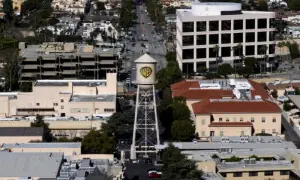








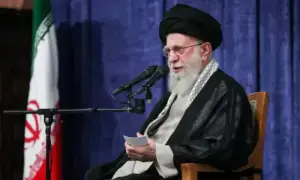
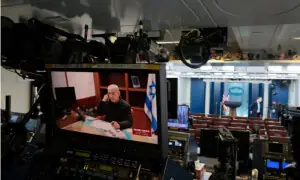
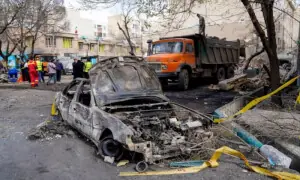
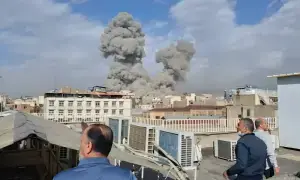
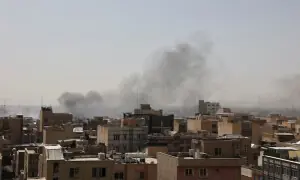



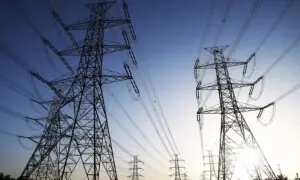
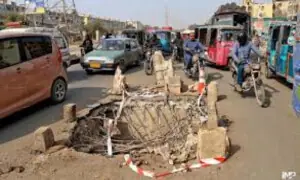

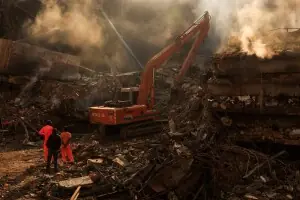
Comments are closed on this story.